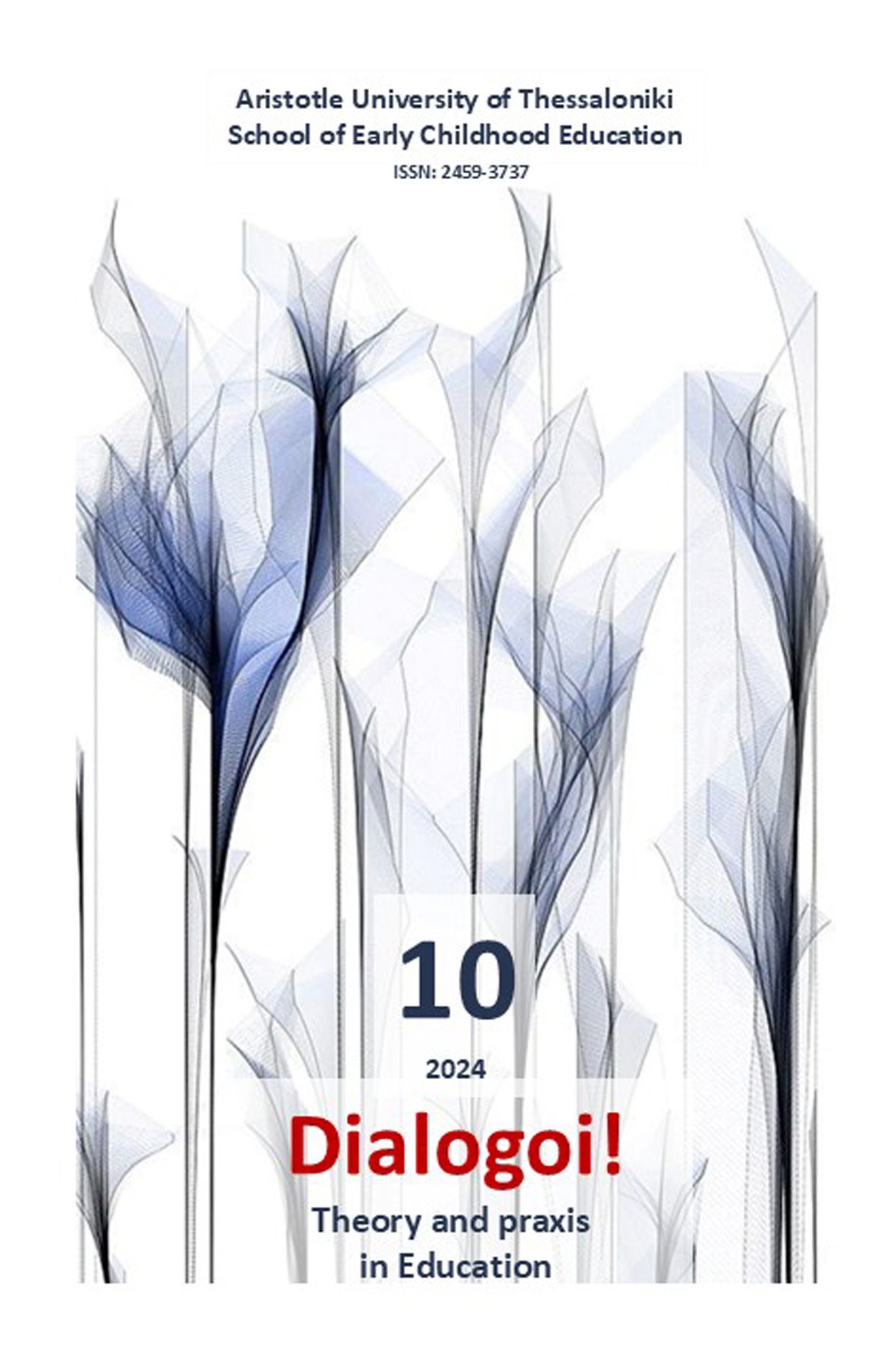Intercultural education and vulnerable social groups: Ιnclusion policies and good practices

Abstract
In the present article, the vulnerable social groups that constitute a reference point for intercultural education in terms of the design and development of programmes aimed at the inclusion of students in contemporary Greek schools are identified. In this context, these research-educational programmes are presented, which have been implemented over the last 25 years and concern either students with an immigrant background, students belonging to the Muslim minority of Thrace, or Roma students, with the ultimate aim of providing multi-level support for their schooling and addressing the educational and social exclusion they often experience. Special reference is made to the good practices implemented in the recent programme for the inclusion of Roma children in Central and Western Macedonia.
Article Details
- How to Cite
-
Kalogerogianni, F. (2024). Intercultural education and vulnerable social groups: Ιnclusion policies and good practices. Dialogoi! Theory and Praxis in Education, 10, 36–51. https://doi.org/10.12681/dial.36539
- Issue
- Vol. 10 (2024)
- Section
- Scientific columns

This work is licensed under a Creative Commons Attribution-NonCommercial-ShareAlike 4.0 International License.
Authors who publish with this journal agree to the following terms:
- Authors retain copyright and grant the journal right of first publication with the work simultaneously licensed under a Creative Commons Attribution Non-Commercial License that allows others to share the work with an acknowledgement of the work's authorship and initial publication in this journal.
- Authors are able to enter into separate, additional contractual arrangements for the non-exclusive distribution of the journal's published version of the work (e.g. post it to an institutional repository or publish it in a book), with an acknowledgement of its initial publication in this journal.
- Authors are permitted and encouraged to post their work online (preferably in institutional repositories or on their website) prior to and during the submission process, as it can lead to productive exchanges, as well as earlier and greater citation of published work (See The Effect of Open Access).


